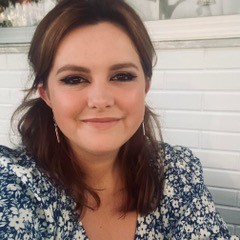
Caitlin Tanner
- Country:
- Wales
- Course:
- PhD Nursing
Can you provide a brief overview of your PhD subject?
My PhD title is ‘exploration of the experiences of d/Deaf nurses within the UK’ and it aims to provide an overview of the experiences of nurses who have deafness and how their clinical practice environment may affect them.
In the UK there are 11 million d/Deaf individuals, making deafness one of the most prevalent disabilities. There is an obvious need to develop and support a more inclusive health professional workforce, strengthen the skill set, and increase under-represented groups as there is low representation of d/Deaf nurses in health services.
Why did you decide to do a PhD?
I wish to become an expert in supporting nurses with disabilities into their role within clinical practice, and to further my own knowledge into research as I am extremely passionate about this. I want to provide original research that has the potential to change practice, policies, and guidelines.
Why did you decide to study at Swansea University?
Swansea University has supported me in 6 years of study at undergraduate, postgraduate, and will continue to support me for a further 3 years into my PhD. The tutors and academics are extremely approachable, supportive, and have helped guide me on my journey to my PhD. I am extremely grateful for my supervisors these last 6 years as I would not be where I am today without their encouragement and support. When I did my undergraduate in Nursing at Swansea University, I had the opportunity to go on an Erasmus exchange programme wherein I lived and nursed in Finland for 3 months and was supported entirely.
What challenges have you faced?
I am bilaterally profoundly deaf and wear cochlear implants. I have had a lot of challenges over these last 6 years with having to adapt to my environments. It has been difficult to work throughout the covid pandemic in ICU and during my masters as I relied a lot on lipreading but the support from my colleagues and university tutors helped me to thrive. I utilised all support available to support my learning, such as radio aids and other assistive devices.
What have you gained from undertaking your PhD?
I have attended a PhD workshop in Norway for 5 days in December 2022 called ‘Dr Deaf PhD workshop’ which has been an absolutely fantastic opportunity that allowed me to collaborate with other deaf academics from around the world, who have been so welcoming.
How will your qualification help your career? Has it already helped your career?
I am open to the possibilities this PhD will provide, whether it be a career in research or lecturing. The benefits of conducting this research degree are that the skills gained would be significantly useful for any job or career avenue I would like to be employed within in the future. My education MA has been useful in supporting my clinical practice mentoring of nursing students and newly qualified nurses within ICU. Additionally, my qualifications resulted in me being shortlisted for SBUHB ‘learner of the year award’ and consequently was awarded this due to my endeavours in my MA and my PhD.
What’s been your highlight?
I worked with a deaf charity to create a YouTube video to explore nursing and higher education (masters and PhD) as an avenue young deaf people can aspire to achieve
What advice would you give to students considering postgraduate study?
- Talk with potential supervisors or academic lecturers about your aspirations, and see whether they could signpost or outline any opportunities for you to explore to further your goals
- Think why you want to do postgraduate study, and really explain your motivations for doing so as this would really help your application
- Never be afraid of feedback, as everything is always a learning curve.
- Advocate for yourself if you have any disabilities that have needs that must be met, like using assistive devices.
